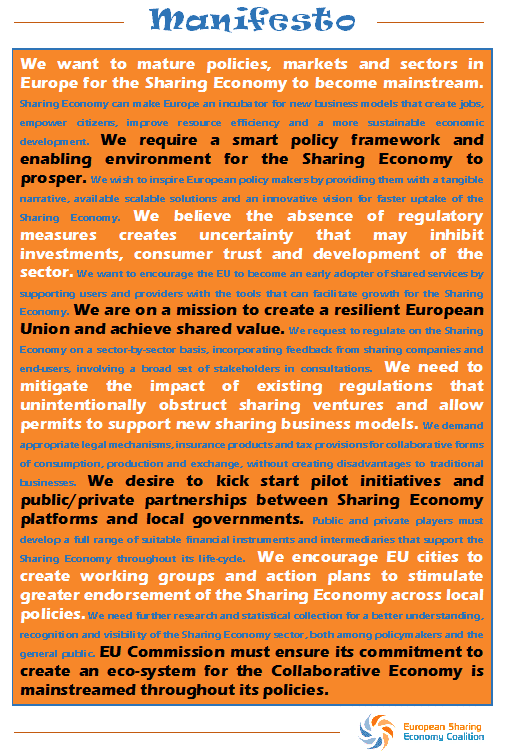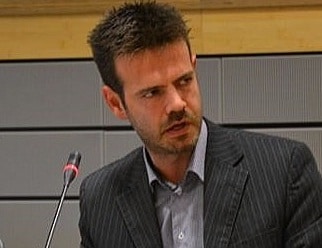 Crowdsourcing is growing quickly in Europe and the number of organisations tapping into the crowd to create scalable solutions continues to raise steadily. Crowdsourcing is impacting various sectors from transportation to finance, to education and manufacturing. The Sharing Economy, the Maker Movement, the Peer to Peer sector and Collaborative Consumption marketplaces are all using some forms of crowdsourcing models.
Crowdsourcing is growing quickly in Europe and the number of organisations tapping into the crowd to create scalable solutions continues to raise steadily. Crowdsourcing is impacting various sectors from transportation to finance, to education and manufacturing. The Sharing Economy, the Maker Movement, the Peer to Peer sector and Collaborative Consumption marketplaces are all using some forms of crowdsourcing models.
The Sharing Economy was leveraged by an explosion of social technologies and shared resources, allowing organisations to collectively tap into crowds, ideas and sectors across the global marketplace, creating a new economic reality and prosperity.
Comparably, both the Sharing Economy and Crowdsourcing allow to access resources found in distributed networks of people. One area where this is becoming more and more relevant is what is referred to as “the new workforce”.
Fundamental societal changes, unprecedented economic uncertainty and global megatrends are changing the way work works and how people connect with work towards greater dynamism. A growing shift has started where organisations are less compelled to own resources, but place more value on access to networks and talent pools, taking on-demand approaches to secure skilled competencies on an as-needed basis. The evolving workforce is a mixture of full-time employees, contractors, freelancers, and – increasingly – people with no formal ties to your organisation at all, the open source talent or crowdsourcing model. This new method of sourcing has gained attention for its power to harness collective intelligence and foster innovation – a critical part of any growth-driven competitive strategy. In the future, organizations’ competitive advantage will hinge on workers who aren’t employees at all. This trend will ultimately rewrite what the term “workforce” actually means. Networks and peer to peer platforms brought by the Sharing Economy and Crowdsourcing practices can redefine dynamic work relationships in a unique way and enable organisations and “the new workforce” to connect as required.
The European Economic and Social Committee (EESC), a consultative body of the EU, recently endorsed a new opinion on Collaborative Consumption and called for further policy action at EU level. The opinion acknowledges opportunities for consumer and businesses in the single market as well as the positive potential economic, social and environmental impact of the Sharing Economy. Despite these positive developments at EU level, sharing economy and crowdsourcing practices are struggling to find conducive ways to penetrate the market in Belgium. Legislation largely restricts home sharing and a recent regulatory battle between peer to peer car sharing companies and the Brussels Ministry of Transport is harshly taking place.
Most of the regulatory roadblocks are in place because of outdated legislation and the resistance of incumbents. Crowdsourcing and the Sharing Economy have a potential to disrupt traditional businesses that have been characterised by lack of access, centralised power structures and intricate distribution channels. Many organisations are built in accordance to this old fashioned model, such as universities, banks and media companies. Other industries that will be disrupted and subsequently transformed will be those that have operated for a very long time with layers of the 4 I’s – infrastructure (complex), intermediaries (redundant), inventory (burdensome) and investment (abundant).
Note from editor: The CSW Summit Brussels, June 5 & 6 will highlight collaborative applications to business and enterprise. Join Domenico Rossetti, European Commission; David Vuylsteke, PiggyBee; Maarten Kooiman, Tapazz.com; and Marco Torregrossa, European Sharing Economy Coalition for with an in-depth focus on the sharing economy in the EU — View full agenda and registration information for CSW Summit Brussels.
About the Author:
 Marco Torregrossa is Managing Director at Euro Freelancers, a synergic network of independent EU affairs professionals and investors specialised in sustainability, collaborative innovation and crowd-sourcing. In addition, Marco is Lead Administrator at the European Sharing Economy Coalition, EU Connector at OuiShare and Global Curator at Collaborative Consumption. Follow Marco on Twitter.
Marco Torregrossa is Managing Director at Euro Freelancers, a synergic network of independent EU affairs professionals and investors specialised in sustainability, collaborative innovation and crowd-sourcing. In addition, Marco is Lead Administrator at the European Sharing Economy Coalition, EU Connector at OuiShare and Global Curator at Collaborative Consumption. Follow Marco on Twitter.



0 Comments